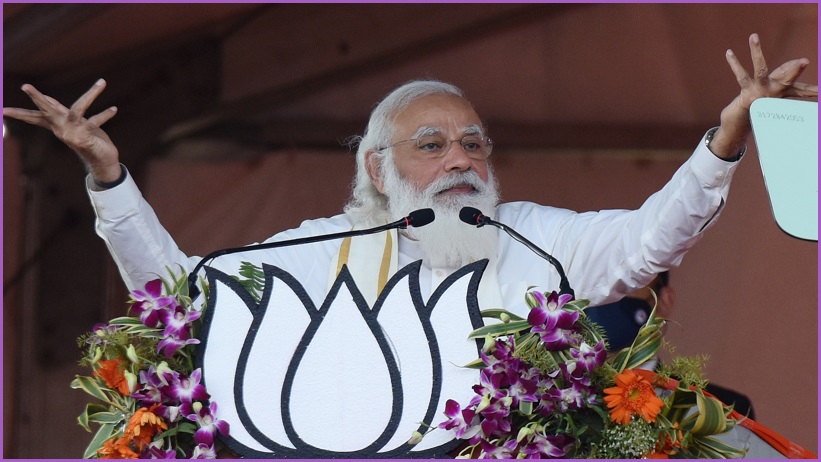The Indian government has ordered more than 100 social media posts to be banned amid the worst COVID-19 outbreak in the world.
India, which is struggling with overwhelmed hospitals and a lack of medical oxygen, recorded more than 350,000 new COVID-19 cases on Monday alone, and has had more than 2,000 deaths each day for the last week.
During the unfolding disaster, the Ministry of Electronics and Information Technology has demanded that social media giants Twitter, Facebook and Instagram remove a number of posts.
The government has argued that these posts have incited “panic”, are out of context and spreading “misinformation” about the pandemic, but critics have said it is a move to censor political criticism of the ruling party during the humanitarian crisis.
The legally binding order requested the tech firms remove the posts for being “unrelated, old and out of context images or visuals, communally sensitive posts and misinformation about COVID-19 protocols”, the Indian Express reported.
In a statement, the Ministry of Electronics and Information Technology said that “certain people are misusing social media to create panic in society”, and that it was “necessary to take action against those users who are misusing social media during this grave humanitarian crisis for unethical purposes”.
In response, Twitter has blocked the posts in question from appearing in Indian, meaning users in the country are restricted from seeing them, but those around the world can still view them.
The company said that when it receives a valid request, it will restrict content deemed to be illegal in a country but not against its rules, rather than deleting it entirely.
The posts included ones by a journalist, a filmmaker, a member of the Indian Parliament and an actor, and many were critical of the government’s handling of the COVID-19 surge.
One of the blocked tweets was posted by Pawan Khera, a spokesperson for India’s main opposition party.
The tweet claimed the government had failed to admit that a large religious festival held recently had contributed to the recent wave in COVID-19 cases.
Another post by sitting member of Parliament Revanth Reddy had blamed Indian Prime Minister Narendra Modi for the unfolding “disaster”, claiming a “shortage of vaccines, shortage of medicines, increasing number of deaths”.
The posts are understood to have been deemed illegal under Section 69A of India’s Information Technology Act, which allows the government to restrict online material if it is decided to be against national security.
Apar Gupta, the executive director of New Delhi-based Internet Freedom Foundation, said there are significant concerns about censorship and freedom of speech.
“Our main concern is the secrecy in the censorship,” Gupta told the Wall Street Journal.
“Any legal order for directing blocking of websites should contain reasoning and be made public. Neither of these steps are being carried out right now.”
The IT Ministry denied the move was about censoring political criticism.
It came just after Twitter announced it had taken down or restricted access to over 50 tweets following requests from the Indian government in the last month.
Earlier this year the Indian government asked Twitter to remove a number of posts about a farmers’ protests against agriculture reform laws.
The social media company at first complied with the legal order, but on the same day restored the accounts, saying there was “insufficient justification” for the suspensions.
The Indian government then threatened India-based Twitter employees with jail time if they refused the request.
Twitter then suspended more than 500 accounts engaged in “platform manipulation and spam”, took action against “hundreds of accounts” that went against its rules, and prevented some terms from trending.
Last year, the Indian government banned popular video platform TikTok, along with nearly 60 other Chinese apps.










